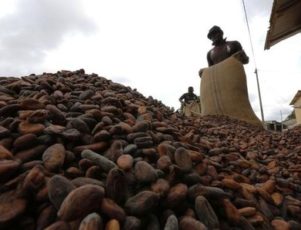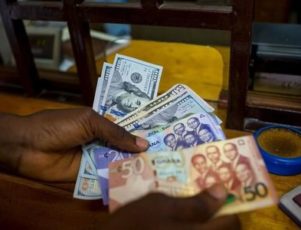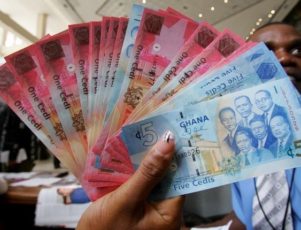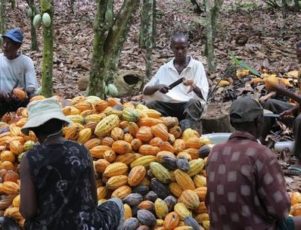ACCRA (Reuters) – Ghana has postponed a Eurobond sale of up to $1.5 billion it had expected to launch on Friday amid a rise in borrowing costs for emerging market nations, a senior government official said.
Analysts said the delay, following roadshows in London and the United States, was probably a response to the prospect of having to pay higher yields after concerns about China’s economy and a possible U.S. rate rise roiled global markets.
Eurobonds issued by other commodity-exporting African countries have sold off sharply in recent weeks as metals prices have plunged.
Ghana’s planned issuance was mainly to refinance debt. The country is heeding an International Monetary Fund programme to stabilize its economy in the face of a fiscal crisis that includes a debt to GDP ratio around 70 percent.
Senior Ghanaian financial policymakers have concluded a roadshow in London and U.S. cities and are returning to Accra. Officials said the launch could still happen in the near future.
“What it means is that we are not closing the book (launching the Eurobond) today,” said the official, who declined to be named. “But we are still live in the market and could seal a deal anytime we deem fit.”
A finance ministry statement said Ghana continues to consider the bond issue subject to market conditions. Another senior official told Reuters there was significant interest in the bond but the yields were not attractive.
“The reason why the deal is not announced yet, I suspect, is that the government was surprised that the cost of funding was still elevated relative to their expectations,” said a London-based fund manager.
Investors were demanding a high premium despite a World Bank guarantee for the bond of $400 million and the government appeared to be considering cutting the bond to $1 billion or lower to get the desired pricing, the manager said.
The manager said Ghana wanted to pay a 9.5 percent yield for the bond, while a source involved in book running for the launch said the market was demanding closer to 11 percent.
Angola on Wednesday cancelled plans for a $1.5 billion Eurobond due to challenging economic conditions and has not set a new time frame for the issue.
GROWTH SLOWS SHARPLY
For years, Ghana had one of the strongest economies in sub-Saharan Africa thanks to exports of gold, cocoa and oil. But growth has slowed sharply in the last two years due to a fall in global commodity prices and economic instability.
The government forecasts GDP growth at 3.5 percent this year and is under pressure to boost the economy ahead of what is expected to be a tight election battle in 2016, when President John Mahama will run for a second term.
“The Eurobond is critical in helping to anchor stability in foreign exchange rates and for government to refinance existing Eurobond issues,” said Sampson Akligoh, managing director of InvestCorp investment bank, which is based in Ghana.
The cedis gained slightly on Friday against the dollar but a trader said sentiment could turn bearish next week if the bond was not launched, given the market expected inflows from it and a $1.8 billion cocoa loan.
The yield on Ghana’s outstanding 7.87 percent Eurobond due 2023 has surged to record highs above 11.3 percent, according to Tradeweb data.
The average yield premium investors demand to hold emerging sovereign dollar bonds over U.S Treasuries soared almost 100 basis points in the third quarter. It now stands at 470 bps, close to 6-1/2 year highs hit at the end of last month, according to JPMorgan’s EMBi Global index.
But the average premium demanded of African sovereigns rose by an even greater 160 basis points in the third quarter and stands at 520 bps over U.S. Treasuries on the EMBIG index, while Ghana’s premium has jumped by 200 bps in this period to 914 bps.
(By Matthew Mpoke Bigg and Kwasi Kpodo, Reuters)
Read more




